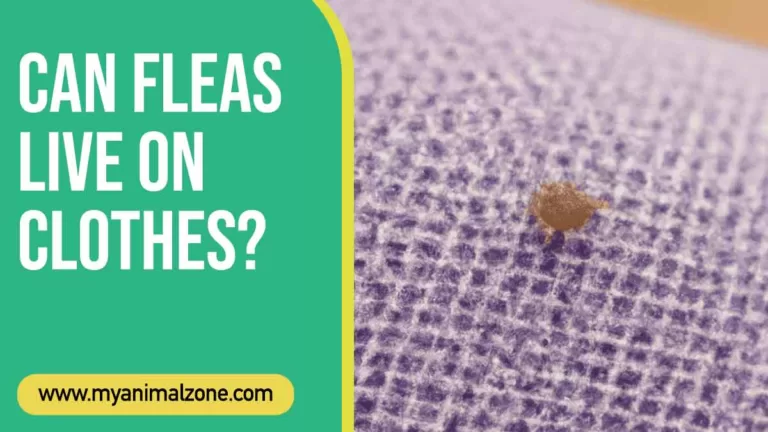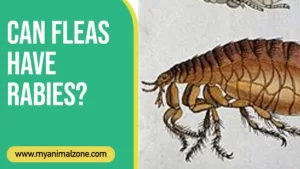Knowing if fleas can live on clothes is important, and how to tackle the infestation is essential. You may be surprised to learn that Fleas can live on clothes and cause serious problems. This article will help you understand how to protect yourself and your home from fleas.
Fleas are tiny insects that feed on blood. They are an unfortunate nuisance for most pet owners but can also affect humans. Not only can fleas live on clothes, but they can also linger there for some time, making it essential to understand the lifecycle of fleas and how to properly eradicate them from all areas of your home – including clothing, bedding, and furniture.
In this article, we will explore the following:
- What conditions are required for fleas to live on cloth surfaces?
- How long can they survive there?
- What strategies can you use to prevent their presence in your home?
What are Fleas?
Fleas are tiny wingless parasites that feed on the blood of humans and other warm-blooded animals, including cats and dogs. They have three pairs of legs which allow them to jump from host to host and to travel quickly on their furry bodies.
While adult fleas typically live on cats, dogs, and other household pets, immature fleas, known as larvae, can be found in beds, carpets, furniture, and clothing.
Where do Fleas Live?
Fleas are parasites that feed on the blood of their hosts and typically feed on warm-blooded animals such as cats, dogs, and humans. However, some species of fleas prefer to live amongst humans and in their homes rather than outside or on a pet.
While many people think that fleas can only live on animals, it is a fact that fleas live in fabrics inside their home, such as:
- Carpets
- Couches
- Bedding
- Clothes
- Books
- Stuffed Animals
Fleas love warm dark places to hide in, such as under furniture or cracks, and carpet and fabric fibers also provide an ideal environment. In addition, fleas can survive much longer when sheltered indoors away from extreme temperatures and sunlight.
Can Fleas Live on Clothes?
Fleas are known to be annoying household pet pests, but can they live on clothes? The answer is yes; fleas can live on all types of fabric, including fabrics such as bedding, carpets, and clothing. Flea eggs can also survive on materials and will hatch when the temperature and humidity become suitable.
One way to prevent a flea infestation in your house is to keep fabrics such as clothing off the ground or any surface where these pests may take up residence. Ensure the clothes are stored in closets or drawers or hung off the ground. It’s also important to regularly wash your clothes and other fabrics in hot water with a strong detergent. Vacuuming furniture and carpets regularly can also help to remove potential flea larvae from surfaces.
If you do believe you have a flea problem, some standard methods of getting rid of them include:
- Using natural products like diatomaceous earth or essential oils (such as lavender oil).
- Chemical insecticides.
- Dusting powders.
- Using vacuums with a special attachment for fleas.
- Professional exterminators may be called upon to remove these pests from homes in severe infestation cases safely.
Prevention of Fleas on Clothes
Preventing fleas from living on clothing is essential to keeping one’s home and family safe from a flea infestation. Fleas are tiny insects that feed on the blood of animals, making humans and domestic pets potential hosts. The risk of getting a flea infestation is higher in homes with pets or those located in heavily wooded areas. In addition, fleas can live on carpets, furniture, and even clothing when brought into the house.
The following steps are taken to prevent your clothes from getting infected by fleas:
- Wash clothes frequently in hot water with detergent and chemicals labeled for killing fleas. This will help kill any eggs attached to it and prevent adult fleas from a residence in it.
- Vacuuming carpets regularly and dispose of the contents immediately since those can contain potential flea eggs or larvae, which may be present if you already have an infestation. Vacuuming can also effectively remove adult fleas that may have been deposited by pets or entered through open windows or doors.
- Use commercial insecticides labeled for flea infestations but keep children and pets away until the spray has dried since inhaling these particles is not recommended. Some products use natural essential oils such as cedar oil which helps break down the insect’s exoskeleton but still requires time for it to be safe for people to come in contact with again without an adverse effect.
- Apply dusting powders containing pyrethrin, a compound derived from chrysanthemums, around areas where your pet likes to rest or sleep, carpets, furniture, and other regions which attract fleas.
- Avoid storing clothing directly on floors without cabinets because this gives attractive harborage positions for pests like mites, carpet beetles, or even silverfish to attach themselves to your attire leading to damage over time if not removed before it gets too late.
By taking these preventative measures, you stand a much better chance at stopping a full-blown invasion of these pesky little parasites while enjoying comfortable clothing free from their presence!
Treatment of Fleas on Clothes
Getting rid of fleas on clothes requires a multi-step approach. First, fleas survive off the blood of their host, so if they’re living on your clothing, it’s likely due to direct contact with an animal. It’s essential to treat the area that the fleas are infesting, along with any clothing and other items that may be affected by the infestation.
The first step is properly to dispose of animal droppings or feces containing flea larvae. It’s also essential to vacuum carpets and furniture thoroughly and be aware of pet beds or items that hold body heat -fleas love warm places! Next, wash laundry either in hot water or have it dry cleaned. Finally, dry cleaning will kill all stages of flea eggs and pick up any flea larvae present in the clothing. Finally, spray a residual insecticide directly onto all fabrics and carpets to kill any remaining adult fleas before they can reproduce again.
These steps should help eradicate the infestation before it worsens and spreads throughout your home or facility. Follow manufacturer instructions when applying insecticides, and read all warning labels before use!
Possible Health Risks from Fleas on Clothes
Fleas can be persistent pests commonly found in homes and on animals. Although fleas are unlikely to live on clothes, there may be some potential health risks associated with their presence. For example, flea bites can cause skin irritations and infections in humans and other animals, which can worsen if left untreated. Fleas may also carry other parasites and diseases, so it’s essential to take precautions when coming into contact with them or their eggs.
Fleas often attach to clothing when traveling from one location to another, usually on pets or humans who carry them outdoors. Once they land on clothing, fleas look for a warmer environment – typically the skin of a human or pet – where they can attach themselves and begin feeding. Fleas are small enough to inhabit crevices among fabrics; this is why you may sometimes find them occurring in blankets or bedding.
There is no guarantee that you won’t encounter fleas living on your clothes; this is why it’s essential to inspect clothing items for any signs of flea activity regularly. Observable symptoms include unidentified bites or bumps on the skin and possible markings from flea droppings (dark spots). If you discover suggestive evidence of flea presence, immediately wash the affected clothing items thoroughly in hot water. Additionally, inspect areas such as carpets where this activity may have originated and vacuum thoroughly if necessary.
In conclusion,
the answer to the question “Can fleas live on clothes?” is yes, they can. Fleas can live in clothing and cause itchy, uncomfortable bites. They can survive for several days without a blood meal if the environment is warm and humid enough.
It is essential to know that fleas on clothes will spread to other areas of the home and may even infest your pets. It is also important to remember that vacuuming, washing your clothing in hot water, and using a flea comb are practical ways to get rid of them. If all else fails, contact a pest control professional for help.




